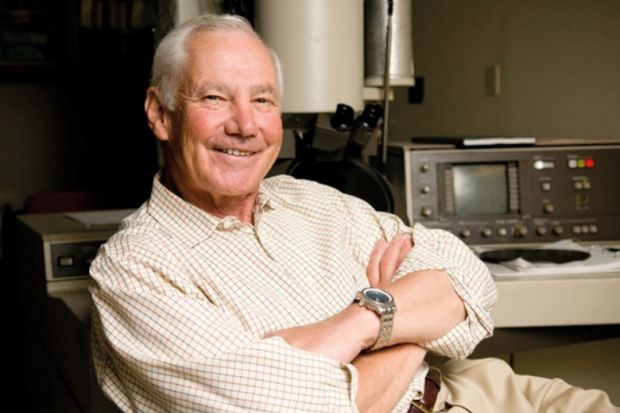A leading microbiologist who many think deserved a Nobel prize has died.
Stanley Falkow was born in Albany, New York in January 1934 and grew up in what he once described as “a noisy, colourful environment of tenement row houses filled with a mélange of languages, smells, and customs”. The family moved to Newport, Rhode Island in 1943, and it was there that he came across Paul de Kruif’s book The Microbe Hunters (1924) and decided that he wanted to follow its main characters on “the most extraordinary adventure that I could imagine”.
In pursuit of this, Professor Falkow studied at the University of Maine (1951-55), and a summer job in Newport Hospital’s clinical laboratory helped to inspire what he later called “an ever greater passion to understand the biology of pathogens”. He then embarked on postgraduate study at the University of Michigan, although recurrent panic attacks forced him to take a break, before continuing at Brown University and then the Walter Reed Army Institute of Research. He was already doing important research on how bacteria transmit certain traits to one another through the transfer of plasmids, including an ability to break down compounds that would normally kill the bacterial cells.
After posts at Georgetown University (1967-71) and the University of Washington (1972-81), Professor Falkow spent the rest of his career at Stanford University, eventually retiring as professor emeritus of microbiology and immunology.
Although ill health forced Professor Falkow to give up his laboratory in 2005, he remained highly active and even took flying lessons at the age of 72. In 2008, he received the Lasker-Koshland Award for Special Achievement in Medical Science – a prize often referred to as “America’s Nobel”. Aware that he had also been nominated for the Nobel itself, he was fearful of the attention that it would have brought him and would become distinctly anxious when the university’s communications office got in contact each October to find out how to reach him if he were to win.
“Stanley lived and acted as if he was never going to run out of ideas,” said Manuel Amieva, Falkow’s former doctoral student who is now associate professor of paediatrics and of microbiology and immunology at Stanford. “He was so charismatic and told all these stories about being on the side of the microbes. Some people say that Stanley himself was infectious – his personality and humour could hook you and draw you in.”
Professor Falkow died on 5 May after a series of strokes and is survived by his wife Lucy Tompkins (a fellow Stanford professor), two daughters, a stepson and four grandchildren.




